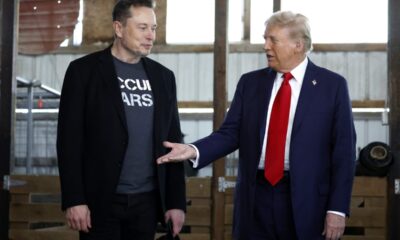Chancellor Rachel Reeves said on Wednesday she will not “be coming back with more tax increases or more borrowing” before the end of the current parliament, arguing that no further topping up of spending on public services would be needed.
Reeves told MPs that last week’s £40bn tax-raising Budget, which also included £28bn-a-year of new borrowing, was a one-off “reset” and insisted: “We will never need to do a Budget like this again”.
“We have now set the envelope for spending for this parliament. We are not going to be coming back with more tax increases or more borrowing. We now need to live within the means we’ve set ourselves,” Reeves told the House of Commons Treasury select committee.
The comments appeared to be an explicit assurance from Reeves that she would not raise taxes or borrowing further. But when pressed by MPs, the chancellor softened her remarks and said it would be “naive” to “write five years’ worth of Budgets” given uncertainties in the global economy.
Reeves’ comments follow warnings from both the Office for Budget Responsibility — the UK’s fiscal watchdog — and the Institute for Fiscal Studies think-tank that many areas of public services could come under renewed strain after 2026 because the chancellor has front-loaded her new spending.
In addition, the extra £100bn of capital spending over five years that she announced will only keep public investment flat as a share of GDP.
Reeves told MPs she had “drawn a line” line under the previous Conservative government’s fiscal plans, which the OBR had said envisaged unrealistic spending cuts, and put the public finances on a firm footing.
She also sought to downplay warnings from economists that Britain’s growth prospects were at risk following Donald Trump’s re-election to the US presidency, given his threat to impose tariffs of 10 to 20 per cent on all imports.
Reeves said the UK’s Labour government would fight to keep trade open. “We’re not just a passive actor in this,” she said. “We will make strong representations about the importance of free and open trade.”
Reeves said UK ministers would use the time until Trump’s inauguration in January to “begin those conversations and prepare for different eventualities”.
She added: “I’m not in favour of new tariffs. I am in favour of trying to do more with countries that share our values.”
At the same hearing, James Bowler, the Treasury’s top civil servant, denied that his department had breached the law by not telling the OBR about a fiscal “black hole” that Reeves says she discovered after taking office in July.
Richard Hughes, head of the OBR, said on Tuesday that the Treasury had failed to disclose a potential £9.5bn overspend by government departments before the last Conservative Budget in March.
“Under law and the act [of parliament] they should have done,” Hughes said. The idea that the Treasury, under former Tory chancellor Jeremy Hunt, hid the fiscal truth has become a central argument for Reeves.
But Bowler told MPs that the Treasury did not break the law and this was something that was “quite important to me”.
The Treasury permanent secretary said: “The law is more about what the OBR have the right to ask for, rather than what is provided to them on our own initiative.”
He said the Treasury had made the assumption that the £9.5bn of spending pressures would be offset by spending cuts or departmental underspends, neither of which had materialised.
Bowler said the Treasury had now adopted a new “bottom up” system for notifying the OBR of spending pressures in each department.



































































































































































You must be logged in to post a comment Login